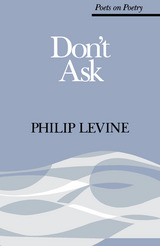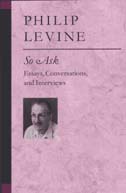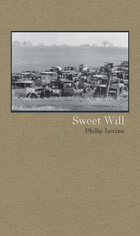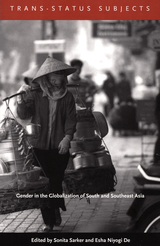
A Church Father’s theological citadel.
Aurelius Augustine (AD 354–430), one of the most important figures in the development of western Christianity and philosophy, was the son of a pagan, Patricius of Tagaste, and his Christian wife, Monnica. While studying to become a rhetorician, he plunged into a turmoil of philosophical and psychological doubts, leading him to Manichaeism. In 383 he moved to Rome and then Milan to teach rhetoric. Despite exploring classical philosophical systems, especially skepticism and Neoplatonism, his studies of Paul’s letters with his friend Alypius, and the preaching of Bishop Ambrose, led in 386 to his momentous conversion from mixed beliefs to Christianity. He soon returned to Tagaste and founded a religious community, and in 395 or 396 became bishop of Hippo.
From Augustine’s large output the Loeb Classical Library offers that great autobiography the Confessions (in two volumes); On the City of God (seven volumes), which unfolds God’s action in the progress of the world’s history, and propounds the superiority of Christian beliefs over pagan in adversity; and a selection of Letters which are important for the study of ecclesiastical theologians.

The overarching theme of Discourse and Technology is cutting-edge in the field of linguistics: multimodal discourse. This volume opens up a discussion among discourse analysts and others in linguistics and related fields about the two-fold impact of new communication technologies: The impact on how discourse data is collected, transcribed, and analyzed—and the impact that these technologies are having on social interaction and discourse.
As inexpensive tape recorders allowed the field to move beyond text, written or printed language, to capture talk—discourse as spoken language—the information explosion (including cell phones, video recorders, Internet chat rooms, online journals, and the like) has moved those in the field to recognize that all discourse is, in various ways, "multimodal," constructed through speech and gesture, as well as through typography, layout, and the materials employed in the making of texts.
The contributors have responded to the expanding scope of discourse analysis by asking five key questions: Why should we study discourse and technology and multimodal discourse analysis? What is the role of the World Wide Web in discourse analysis? How does one analyze multimodal discourse in studies of social actions and interactions? How does one analyze multimodal discourse in educational social interactions? and, How does one use multimodal discourse analyses in the workplace? The vitality of these explorations opens windows onto even newer horizons of discourse and discourse analysis.



The poems, including the long meditation of more than five hundred lines, “A Poem with No Ending,” are beautiful and essential. Restored to print, they will resonate with readers who love both the earlier and the later work of one of our most important poets.

The contributors—including literary and film theorists, geographers, historians, sociologists, and anthropologists—show how the dominant colonial powers prefigured the ideologies of gender and sexuality that neocolonial nation-states have later refigured; investigate economic and artistic production; and explore labor, capital, and social change. The essays cover a range of locales—including Sri Lanka, Vietnam, Thailand, Singapore, Borneo, Indonesia, and the United States. In investigating issues of power, mobility, memory, and solidarity in recent eras of globalization, the contributors—scholars and activists from South Asia, Southeast Asia, England, Australia, Canada, and the United States—illuminate various facets of the new concept of trans-status subjects.
Trans-Status Subjects carves out a new area of inquiry at the intersection of feminisim and critical geography, as well as globalization, postcolonial, and cultural studies.
Contributors. Anannya Bhattacharjee, Esha Niyogi De, Karen Gaul, Ketu Katrak, Karen Leonard, Philippa Levine, Kathryn McMahon, Andrew McRae, Susan Morgan, Nihal Perera, Sonita Sarker, Jael Silliman, Sylvia Tiwon, Gisele Yasmeen
READERS
Browse our collection.
PUBLISHERS
See BiblioVault's publisher services.
STUDENT SERVICES
Files for college accessibility offices.
UChicago Accessibility Resources
home | accessibility | search | about | contact us
BiblioVault ® 2001 - 2024
The University of Chicago Press









